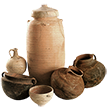
Bible, History, Archaeology
History,
Archaeology
Paul, Roman citizen
Introduction
In the Acts of the Apostles 22:22-29, we read of an incident that brought the apostle Paul before the imperial court in Rome.
 Civitas
Civitas
Paul, taken to task by an unruly mob in Jerusalem, is taken to the Antonia citadel, where the Roman commander orders him to be flogged. It was then that Paul revealed his Roman citizenship; from then on, the soldiers no longer dared to put him in chains, as a Roman citizen could not be subject to local jurisdiction. The public authorities must ensure that his dignity is respected everywhere.
This anecdote perfectly illustrates the prestige attached to Roman citizenship.
Image opposite three Roman soldiers.
From left to right: a centurion dressed in an ornament of torques and phalerae,
- a centurion primus pilus, primipile, the highest rank for a centurion,
- a «classic» legionnaire from the middle of the 1st century A.D. © DR.
The different classes of Roman society
Under the Roman Empire, from 27 BC to 197 AD, society was divided into two main classes:
citizens and non-citizens :
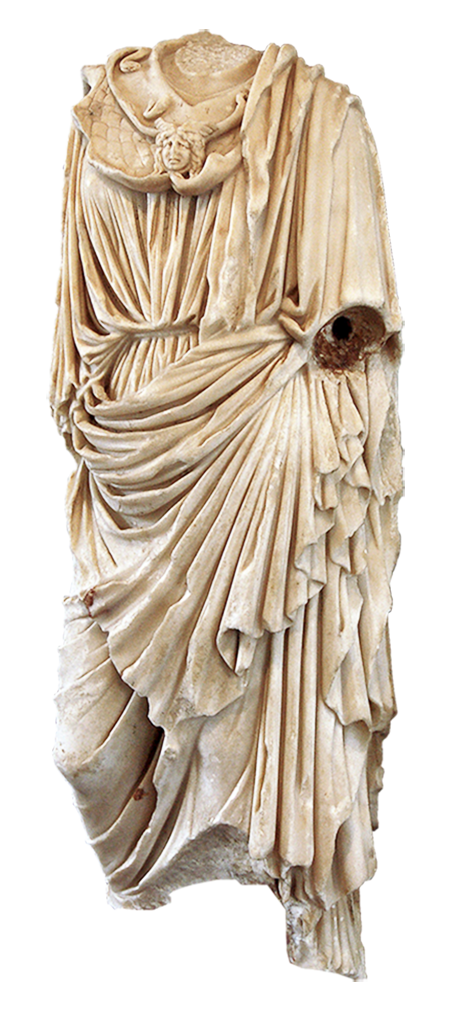
This class is itself subdivided into several hierarchical orders according to wealth :
The senatorial order (ordo senatorius)
It was the highest class in Roman society and enjoyed certain privileges, including a monopoly on magistracy. It is a body of 600 hereditary members who must possess the cens of 1000000 sesterces. Since Hadrian, they have been entitled to the title of clarissini.
The Equestrian Order (ordo equester)
Knights were not hereditary, but constituted the official nobility and were required to pay 400,000 sesterces. They were a wealthy social class of bankers, administrators and businessmen, eligible for magistracy in Rome. This is probably the class to which the « Right Honourable Theophile« the recipient of the «letters» in Luke's Gospel and the Acts of the Apostles. At the head of this order are the imperial princes, endowed with the title of princes of youth.
The plebs
This is the people of the «35 tribes». They played only a minor political role (acclamation of the emperor). The 150,000 proletarians listed in the annone registers receive wheat free of charge. They pay no taxes.
Non-citizens
Located at the bottom of the social ladder, this category is made up of slaves and freedmen.
From the beginning of the Empire, the fate of slaves was humanized under the influence of Stoicism and later Christianity; freedmen became more and more numerous, and some freedmen became citizens in their turn.
Image ci-contre: the toga is the prerogative of Roman citizenship. It is the official garment used exclusively by Roman citizens to distinguish them from the rest of the Empire's inhabitants.
Gowns differ in fabric quality, drape and color, which generally indicates social rank and function. Children and senators wear togas edged with a purple band. In sculpture, color is rendered using paint, which has now largely disappeared. © Théo Truschel.
 Rights and duties of the Roman citizen
Rights and duties of the Roman citizen
The citizen's main rights were political (the right to vote and stand for election), military (the right to serve in the prestigious legionary army) and civil.
Civil rights include the right to tria nomina having «all three names», i.e. a first name (praenomen), a gentilice (the name of the people, the family at large) and a nickname (the cognomen, which identifies you as an individual within a group of people), is a kind of «identity card» that allows you to be immediately recognized as a Roman citizen.
Those that have been adopted bear the tria nomina of the adopter, plus a second cognomen, a reminder of its origins. We don't know tria nomina of Paul.
The right to’intercessio, This is what the apostle Paul did, and why he was tried and executed in Rome.
The status of citizen was equivalent to a passport throughout the Empire, except in Egypt, which was reserved to the emperor; special authorization was required.
Faced with all these rights, there are few obligations: the militia the duty to fulfil military obligations; the tributum tax (on wealth, not income), always exceptional.
With the exception of high treason, the crime of lèse-majesté and moral indignity, only failure to meet these two obligations can lead to loss of citizenship.
Image opposite The Forum (detail) is the main square of ancient Rome.
Its historical, religious and political importance makes it the place around which all the city's life revolves: wedding celebrations, games, gladiator fights, religious ceremonies and festivals, military parades (on the Via Sacra), political proclamations ... © Marcel Roblin.
The Via Appia was the setting for some very popular Christian events. The Acts of the Apostles (28:15) reports that the apostle Paul arrived in Rome by this route: «This is how we came to Rome. The brethren of that city, hearing of our arrival, came out to meet us as far as the Forum of Appius and the Three Taverns. On seeing them, Paul gave thanks to God and took courage» © Stephano Valeri 791928403.
How do you become a Roman citizen?
In Rome, citizenship was originally reserved for the city's inhabitants. The simplest way to acquire citizenship was by birth. All that was required was for the father to be a Roman citizen and to legitimately recognize the child as his own. However, in the course of history, citizenship was rapidly extended to the inhabitants of Italy, then to the colonies established throughout Roman territory, to those of certain communities and even to certain provincial cities that rallied to Rome's values, «the seven-hill capital revered by a whole world».
Other ways of acquiring it as an individual are through exceptional service to the Roman state, through emancipation from servile status and, under the Empire, through a process of integration, as for the notables of a provincial city or the inhabitants of a province.
Paul, Roman citizen
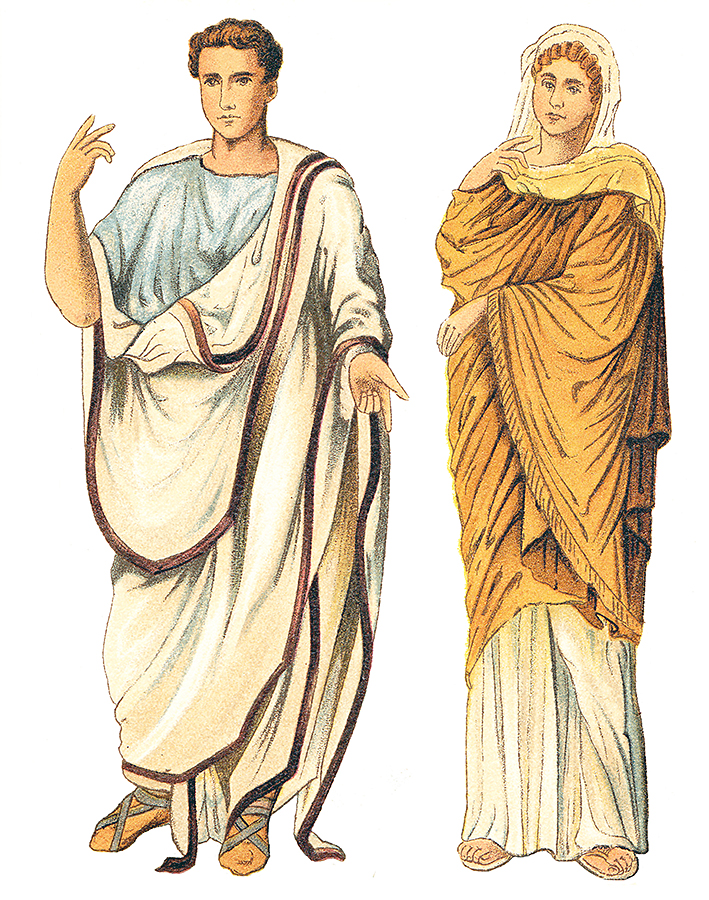
Paul should have been safe everywhere; the most stringent legislation obliged the public authorities to ensure that the dignity of the citizen was respected everywhere, but Paul was repeatedly subjected to infamous sentences. How can we explain this?
Image opposite: an illustration of Roman citizens in official dress. © Hein Nouwens 93975025.
Proving one's identity was a real problem for travelers in antiquity: there were no identity papers or passports (naturalizations were only recorded under Marcus Aurelius (121-180 A.D.)), and local situations varied according to the means available to governors. Hence the importance of local relatives or hosts, who could act as guarantors for the person in question. In the absence of guarantors, the identification of the Roman citizen depended on the opinion of the street or police officers. Mistakes were quite possible, like the one made by Paul and Silas in Philippi, where, after having them beaten with sticks, the magistrates had to come and free them in person.
 A remarkable factor of integration
A remarkable factor of integration
The granting of citizenship, which became increasingly widespread, even under Caracalla in 212, to all free men, was certainly one of the most important factors in the Empire's success, cohesion and longevity. The gradual assimilation of elites from subjugated populations around common values united men of very diverse origins, such as Virgil (Cisalpine), Seneca (Spain) and Saint Augustine (Africa).
Image opposite Obverse: a denarius in effigy of Caracalla (198-217). Obverse: laureate head right, reverse: nude Hercules standing left, holding an olive branch and a club with lion skin. Comptoir des Monnaies, Cohen 196.

Find out more
BASLEZ. Marie-Françoise, Saint Paul
Who was the real Paul? The historical figure often cited today in philosophical and political controversies was presented by the Church as the doctrinaire of Gentile conversion. In reality, he was first and foremost a man of action. In the 1st century AD, this native of Tarsus, who became a disciple of Jesus, acted as a true religious entrepreneur, criss-crossing the Roman East to multiply the nuclei of believers...
Éditions Arthème Fayard/Pluriel, Paris, 2012.

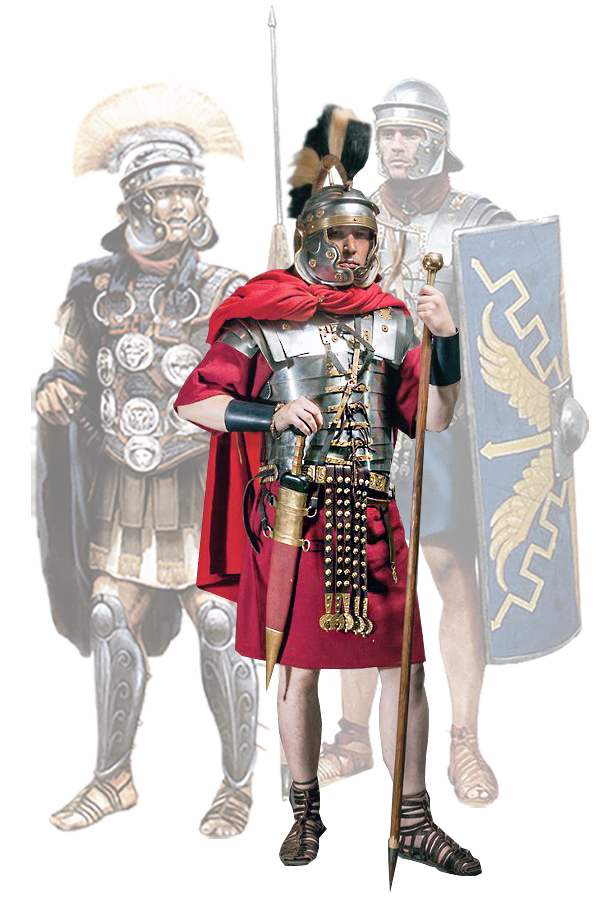 Civitas
Civitas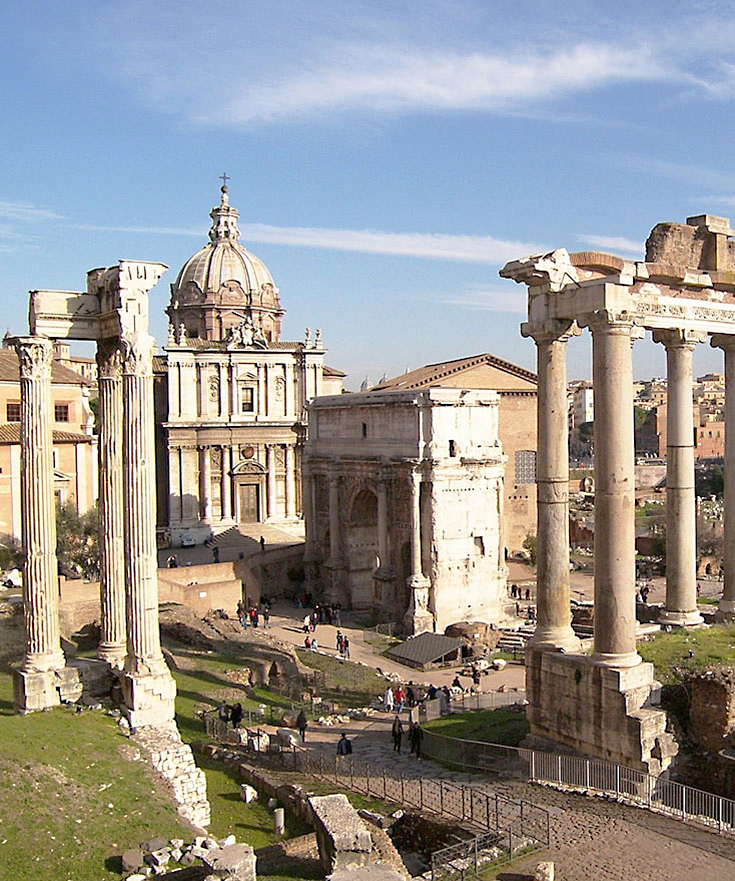 Rights and duties of the Roman citizen
Rights and duties of the Roman citizen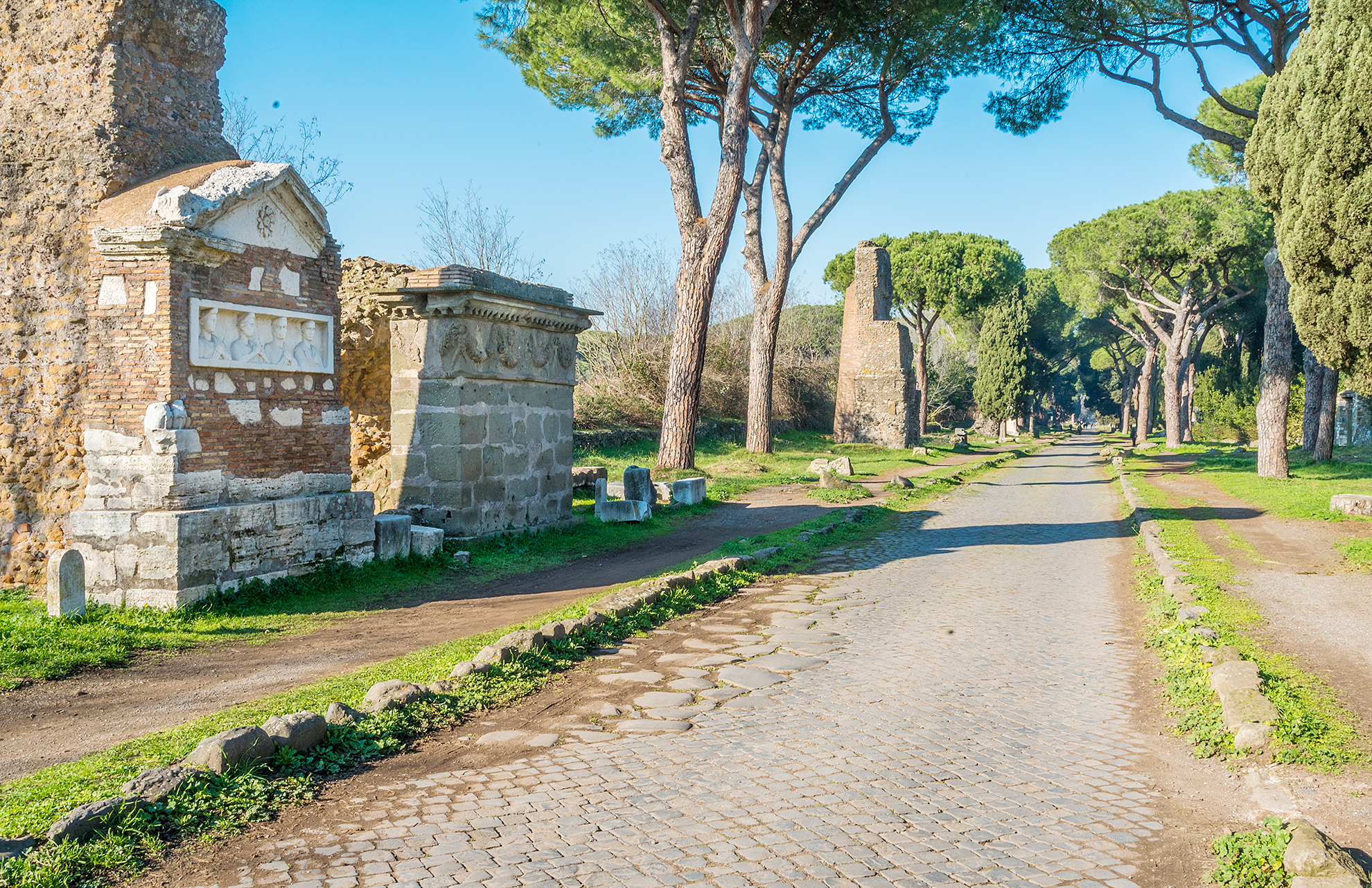
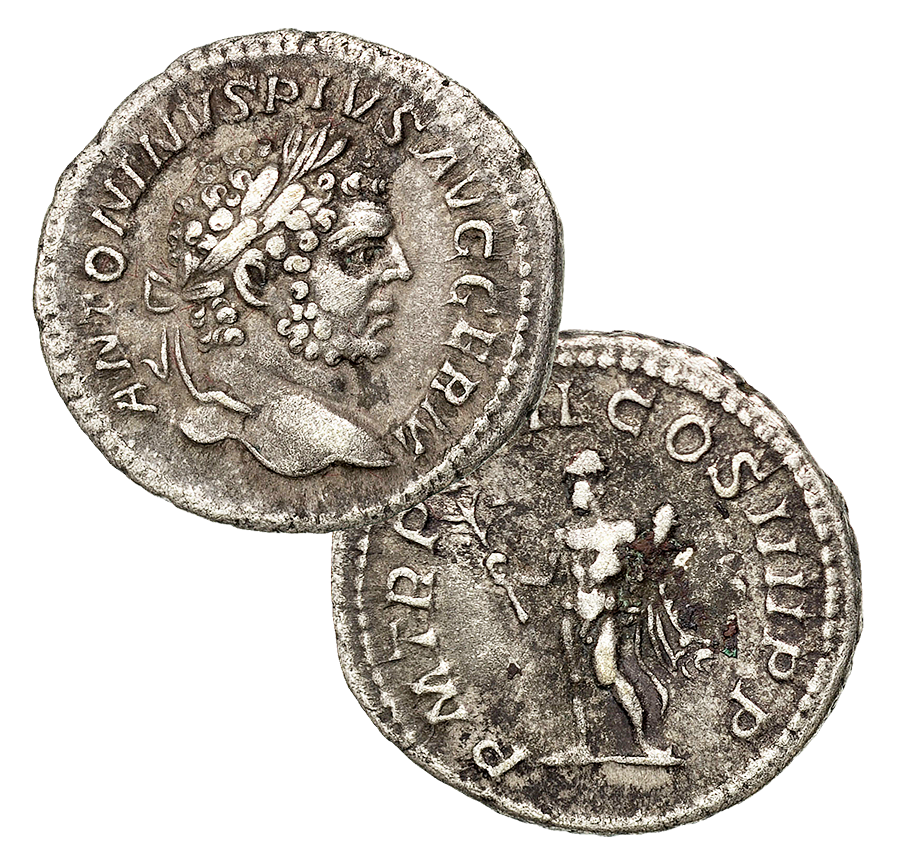 A remarkable factor of integration
A remarkable factor of integration